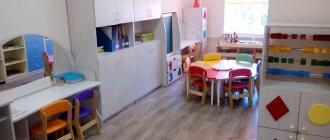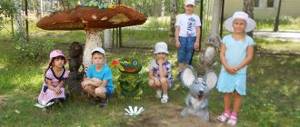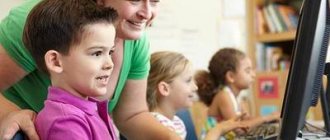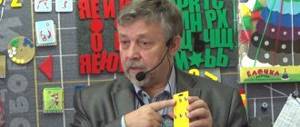An example of filling out a psychological presentation for PMPC
Psychological representation
FULL NAME. child: Ivanov Ivan Ivanovich
Age: 8 years
Class: 1
Purpose of the examination: conclusion for the PMPK
I. _ Description of the characteristics of the child’s behavior during the examination.
Description of contact with the child in the examination situation.
Productive contact with the child is difficult due to increased distractibility of voluntary attention. Easily and quickly comes into contact with adults, is sociable, answers questions willingly; understands an adult’s instructions only after repeated repetition, shows interest in completing tasks, but the interest is not persistent and quickly passes. Needs dosing of load and rest, taking into account individual characteristics.
The prevailing mood background is emotionally unstable, at times foolish.
II . Description of the child’s characteristics identified during the examination.
During the examination, the following features were revealed: the child tends to fantasize, invent something that is not there, shout out phrases, talk about bright moments that happened to him that are not related to the current moment.
Features of the course of mental processes are noted:
gets involved in work quickly, but without understanding the purpose of the task, the pace of work is slow, switchability is difficult. During class, he is often distracted even in the absence of external stimuli.
Formation of social and everyday orientation:
does not know his last name, age; knows the name, calls family members by name. Temporal and spatial ideas and ideas about the environment are not formed.
The general stock of knowledge and ideas (general awareness) is below the age norm.
Features of perception:
the idea of the color, shape, size of the object is partially formed, visual synthesis and holistic perception of the object is not sufficiently formed.
The level of development of fine motor skills does not correspond to age; there is a low level of graphic activity and hand-eye coordination. “Recognizing half-drawn images” I completed the task with the help of the teacher: I recognized 3 out of 5 objects. Does not orientate himself in the sides of his own body. Temporal concepts are disturbed: orientation is insufficient, he does not clearly know the sequence of changing seasons, the concepts of “time of day”, “parts of the day” are familiar to him, but he swaps them, confuses the concepts of “left”, “right”, “behind”. (Subtest “Cut pictures”)
Features of attention
. Attention is unstable, often distracted even in the absence of external stimuli, concentration is reduced, the overall level of development of voluntary attention is below the age norm.
Poorly oriented to the model, copies inaccurately, low level of voluntary attention. (Subtest “House”)
Difficulties in concentration arise when the volume of stimulus material increases.
Memorization Features.
The volume of mechanical memorization is below the age norm; dynamics of memorizing 10 words: 4,4,7, with delayed recall – 7 words; The amount of mechanical (logical) memory is insufficient. Forgets complex instructions, clarifies the sequence of tasks. (Subtest “10 words”)
Level of intelligence development
:
Below the average age norm.
Characteristics of verbal intelligence
Understanding of spoken language is limited. Needs simplification of questions and assignment instructions. The answers are mostly simple, poorly developed. Dialogue speech is poorly developed. The conceptual vocabulary is poor, often determines the everyday purpose of objects, and makes it difficult to select synonyms.
Judgments are primitive, superficial, and not consistent enough. The general outlook is limited, knowledge about the environment is fragmentary and unsystematic. The abilities for generalization and abstraction in the structure of conceptual thinking are not sufficiently developed: similarities are established mainly by external and secondary characteristics, only simple analogies are available. Unable to perform arithmetic tasks involving addition and subtraction with prime numbers.
Characteristics of nonverbal intelligence
Visual perception is fragmentary, superficial, there is no planning, a low level of comprehension of visually perceived material, undeveloped skills for identifying details and features of an object.
Performs operations of generalization, exclusion, and comparison of concepts with great difficulty, and generalizes according to unimportant characteristics. He catches logical connections and instructions for tasks in verbal form in a simplified form after repeated repetition. (Subtest “Complete the sentence”, “4th extra”, “Find the missing one”)
Characteristics of mental performance:
Efficiency is low, fatigue is expressed during work, low productivity, the emergence of impulsiveness against the background of fatigue, and foolishness.
Features of the emotional-volitional sphere, personal characteristics.
The emotional background is unstable, mood swings are typical throughout the day. While performing tasks, there is increased nervousness, uncertainty, and a desire for support and help from an adult. The level of development of self-esteem is above normal.
Voluntary regulation of one's own activities is reduced; external control and support from an adult are required. Behavior is not organized, does not independently regulate its behavior, activity is chaotic. The ability to exert volition is reduced and does not show persistence in the face of difficulties.
The attitude towards peers is non-conflict, the majority plays in a group, strives for emotional contact with peers and adults.
III .
The conclusion made by the educational psychologist as a result of the psychodiagnostic work carried out :
The level of actual development is below the norms of age-related development. Features of the emotional sphere, decreased voluntariness, poor development of fine motor skills, insufficient development of auditory-verbal memory, attention and thinking come to the fore.
transcript
Characteristics for the PMPK examination 'Characteristics for a 3rd grade student'
Psychological and pedagogical characteristics
for a
3rd grade student of MBOU Zorkaltsevskaya Secondary School of the Tomsk District (Beryozkino branch)
Alexander Anatolyevich Karbyshev
Year of birth: May 22, 2004
Lives at: p.86-Kvartal
Karbyshev Sasha did not attend preschool before entering school. On September 1, 2011, he was enrolled in the first grade of MBOU Zorkaltsevskaya Secondary School at the age of 7 years and is studying under the “Prospective Primary School” program. Reason for showing at the PMPK: the skills and abilities necessary to master the educational material of the general education program are not sufficiently developed.
The student’s health status at the moment corresponds to the preparatory group; in grades 1 and 2 he was very sick and often missed classes. According to the medical card, vision, hearing, and sense of smell are normal.
The child's family consists of four people. Mother - Anastasia Alexandrovna, disabled, does not work. The father left the family. Sister is 13 years old, studying in the 7th grade, brother - 11 years old, studying in the 5th grade. The family lives with the grandmother, the social and living conditions are satisfactory, the financial situation is low-income. The schoolchild's daily routine is generally observed; the child spends the working week in a boarding school. There are no absences from classes for unexcused reasons. Insufficient time is devoted to issues of child upbringing and development in the family.
As a result of a survey of students’ adaptation to the educational process, it was revealed that Sasha did not have sufficiently developed skills and abilities necessary to master the educational material.
The student's appearance is neat and well-groomed. He is sociable with his peers, communicates with absolutely all students in the class. Makes good contact with adults and treats them with respect; calmly and attentively perceives the teacher’s comments. General motivation is social, based on an understanding of the social necessity of learning; educational and cognitive motivation is not sufficiently developed. Often worries about his actions and behavior; reacts adequately to critical comments and tries to improve.
Motor functions are formed according to age (gait is stable, coordination is not impaired, dexterity of movements is normal). Fine motor skills of the hands are poorly developed. The leading hand is left. Motor skills associated with self-service are developed very well.
Sasha does not have enough knowledge and ideas about the world around him. There are no violations in play activities; the child knows how to obey the general rules of the game. The schoolchild's visual and figurative thinking predominates, while verbal and logical thinking is not yet fully developed. Sasha has a slow perception and comprehension of new educational material, especially in the Russian language and reading. He needs constant organizing help from the teacher in the form of leading questions, tips, and support from visual material. He independently establishes cause-and-effect relationships in a series of plot paintings with a clear meaning of the plot, but cannot cope with determining logical relationships when working with a series of paintings with a hidden meaning and an incomplete end to the action, understands the meaning of riddles, and really likes to guess them.
Cognitive interests in the educational sphere are not fully formed. Sasha tries to take an active part in the lesson; he often makes mistakes, because he is unsure of the correctness of his answers (although sometimes he thinks correctly, but says a completely different version, listening to the other guys). There are shortcomings in the development of voluntary memory: slow memorization, inaccurate reproduction, poor processing of perceived material. The student finds it difficult to use memorization techniques: semantic grouping, classification, which causes a number of difficulties in mastering the material. Attention is unstable. Sasha is not capable of prolonged stress and concentration on the task at hand. During lessons, he is often absent-minded and has difficulty switching from one type of activity to another. An insufficient level of development of verbal and logical thinking is manifested in the inability to independently solve complex arithmetic problems. A low level of abstract logical thinking makes it difficult to master program material in mathematics. When performing tasks that require analysis, comparison, generalization, he needs extensive help from the teacher. The child has a poor, undifferentiated vocabulary. Impaired written language manifests itself in a large number of specific errors (omissions, substitutions, underwritten letters), as well as in a large number of errors associated with the inability to apply spelling rules in practice. The level of development of coherent speech does not meet program requirements, the child experiences difficulties in writing creative written works (essays, presentations). Sasha has not developed stable forms of self-control and self-esteem and cannot always adequately evaluate the results of his activities. When performing difficult tasks, he accepts the help of an adult and willingly uses it; he cannot overcome difficulties on his own and does not always want to. Efficiency is low, and rapid exhaustion of the body due to mental stress is noted.
The overall pace of activity is slow. Situations of success evoke positive emotions in the child. The predominant type of mood is calm, balanced.
During his studies, Sasha showed poor knowledge in basic academic subjects.
The boy loves to draw, sculpt from plasticine, make appliqués, and enjoys participating in physical education classes.
Sasha does not master the primary school curriculum in basic academic subjects well. I recommend training using a lightweight program.
School director:________ / A.M. Chervonets
Class teacher of 3rd grade:
__________ / T.N. Kumaneva /
Date of compilation of the characteristics:






